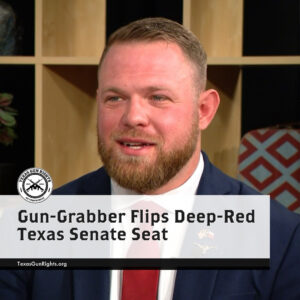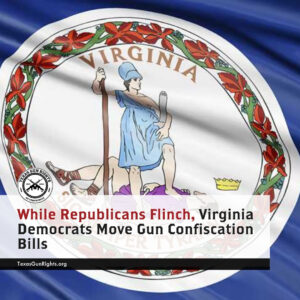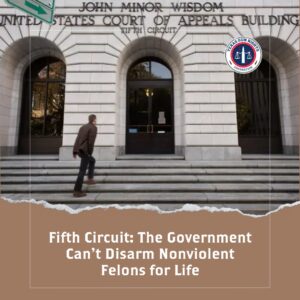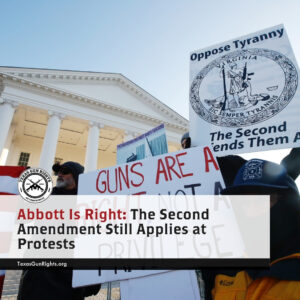July 8, 2024
One year after Governor Gavin Newsom of California proposed a constitutional amendment that would significantly water down and weaken the Second Amendment, his campaign has failed to gain traction beyond his home state. In fact, no other states have joined his call for a “28th Amendment.”
Newsom’s efforts to gather support have been promoted heavily across his social media channels over the past year, and primarily involve online petitions and volunteer training, aimed at building a grassroots movement.
However, legislative leaders in several Democratic-controlled states have indicated that the idea of a constitutional convention to adopt this amendment has not been discussed among their caucuses.
Nathan Click, Newsom’s spokesperson, acknowledged the difficulty of passing a constitutional amendment but emphasized their focus on grassroots mobilization.
“We’re under no illusions of how hard it is to pass a constitutional amendment, so that’s why we’ve focused on building this grassroots army to help these legislators,” Click said.
Despite these efforts, the campaign’s lack of progress raises questions about whether Newsom is genuinely committed to the amendment or using it as a political strategy to maintain national relevance.
California’s strict gun control laws have faced significant challenges in the courts, especially following the 2022 Supreme Court ruling in New York State Rifle & Pistol Association v. Bruen, which overturned New York’s stringent concealed carry law and set a precedent for evaluating firearms regulations.
This ruling has led to numerous lawsuits against California’s gun laws, resulting in several of them being struck down or put under serious legal scrutiny.
In response, on June 8, 2023, Newsom announced his plan to circumvent these judicial setbacks by proposing a constitutional amendment.
His proposed amendment includes universal background checks, raising the federal minimum age for gun purchases to 21, implementing a mandatory waiting period, and banning the sale of assault weapons.
“Governor Newsom isn’t sitting idly by while right-wing judges dismantle our gun safety laws,” Click stated. “He’s taking aggressive actions — defending our state’s first-in-class gun safety laws from judicial attacks while simultaneously fighting to pass a constitutional amendment to enshrine gun safety nationwide.”
However, the path to a constitutional convention is fraught with obstacles. Two-thirds of state legislatures must agree to convene such a convention, and any proposed amendment would need ratification by three-fourths of the states. Given the current political climate, achieving this level of consensus appears highly unlikely.
Chris McNutt, president of Texas Gun Rights, criticized Newsom’s efforts, saying, “This push for a constitutional amendment is nothing more than a publicity stunt. Newsom knows he doesn’t have the support needed to pass this, but he’s using it to keep himself in the spotlight and rally his base — especially with the prospect of Biden being replaced as the Democratic nominee for President.”
Despite Newsom’s efforts, no other states have joined California in calling for a constitutional convention on gun control. Even in Democratic strongholds like New York, Illinois, and Michigan, the idea has not gained traction. Legislators in these states have not discussed the proposal, and there has been little to no outreach from Newsom’s team.
National gun control advocacy groups have also remained distant from Newsom’s campaign. Organizations such as Everytown for Gun Safety and Brady: United Against Gun Violence, while supportive of all of the policies pushed by Newsome, have not publicly supported the push for a constitutional convention, focusing instead on legislative efforts that seem more feasible.
Newsom continues to promote his plan through advertisements and social media, urging supporters to sign his petition.
Despite this, many see his campaign as more of a political maneuver than a serious legislative effort.
Critics argue that his focus on gun control is out of step with other Democratic priorities, especially in key battleground states where gun rights remain a deeply divisive issue.







